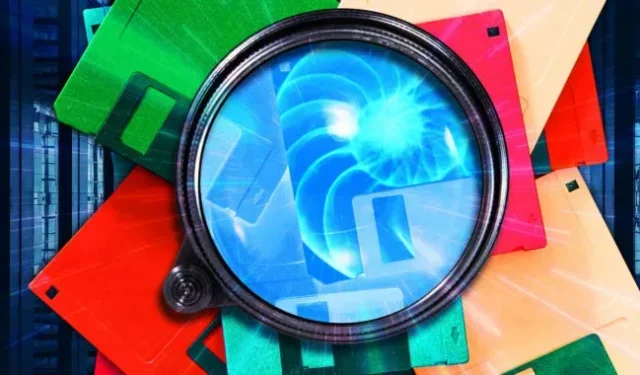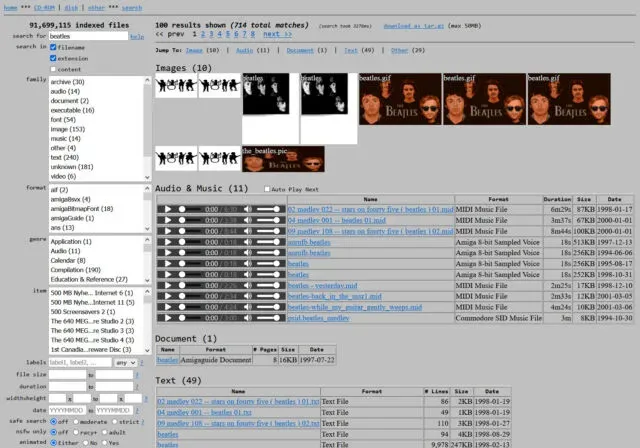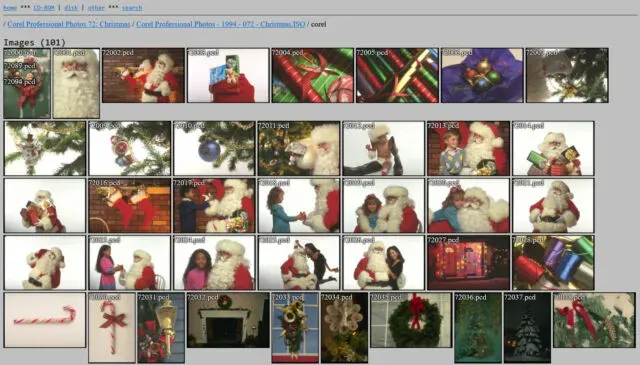Lost something? Search through 91.7 million files from the 80s, 90s and 2000s.

Today, technical archivist Jason Scott announced the creation of a new website called Discmaster that allows anyone to search through 91.7 million vintage computer files retrieved from CD-ROM and floppy disk releases. Files include images, text documents, music, games, shareware, videos, and more.
Discmaster opens a window into digital media culture at the turn of the millennium, turning anyone into a potential digital archaeologist. It’s a rare glimpse into a piece of cultural history that is often obscured by issues of outdated media and file format incompatibilities.
The files on Discmaster come from the Internet Archive, downloaded by thousands of people over the years. The new site brings them together behind a search engine with the ability to perform detailed searches by file type, format, source, file size, file date, and more.
“The value proposition is the value proposition of any freely available research database,” Scott told Ars Technica. “People can dive deeper into history, reference their discoveries, and encourage others to search for the same.”

Discmaster is the work of a group of anonymous, history-loving programmers who approached Scott to host it for them. Scott says Discmaster is “99.999%”the work of this anonymous group, down to a vintage gray theme compatible with web browsers for older machines. Scott says he gave it a name and volunteered to post it on his website. While Scott is an employee of the Internet Archive, he says that Discmaster is “100% unaffiliated”with the organization.
One of the highlights of Discmaster is that it has already done a lot of file format conversion on the backend, which has made older files more accessible. For example, you can search for vintage music files like MIDI or even digitized Amiga sounds and listen to them right in your browser without any additional tools. The same goes for low-res video files from the early 90s, images in obscure formats, and various types of documents.
“It has all the conversion options so you can view everything at once,” says Scott. “Therefore, there is no additional external installation. For me, that’s the main strength of what we’re dealing with here.”
On the Discmaster Twitter thread, people are already using the service to rediscover software they lost in the 1990s, rare BBS files, ZZT worlds, bitmap fonts, shareware they wrote 20+ years ago, and vintage music software. There is a lot of user data in the set, not just professional releases.

“This is probably one of the most important computer history research projects in the last 10 years for me,” says Scott. “It’s not done yet. They analyzed 7000 and a few more CDs. And they’re going to make another 8,000.”
People are people, and you’ll also find plenty of vintage pornography in the Discmaster dataset that’s easy to stumble upon by accident. Users who wish to avoid NSFW material should select “Strict”from the “Safe Search”options at the bottom.
Throwing a wide archival network, everything is captured and available in its unvarnished form. “The [resources] they choose are very specific to CD-ROM compilations and presentations, such as the best shareware,”Scott says. “Pulling out those that were supposed to be encapsulated plastic sources of information.”
Scott is no stranger to radical acts of digital archivism, having been involved in backing up GeoCities, saving Flash files, creating thousands of MS-DOS games that can be played through a web browser, and more. On his personal website, Textfiles.com, he kept archives of BBS files and CDs for nearly two decades. But until now, these resources have never been searchable with the degree of precision that Discmaster allows.
“Maybe some people don’t want to dig through a bunch of old stuff,”he says. “But if you’re someone for whom looking through a bunch of old stuff will really positively affect you, then this is Shangri-La.”
Leave a Reply